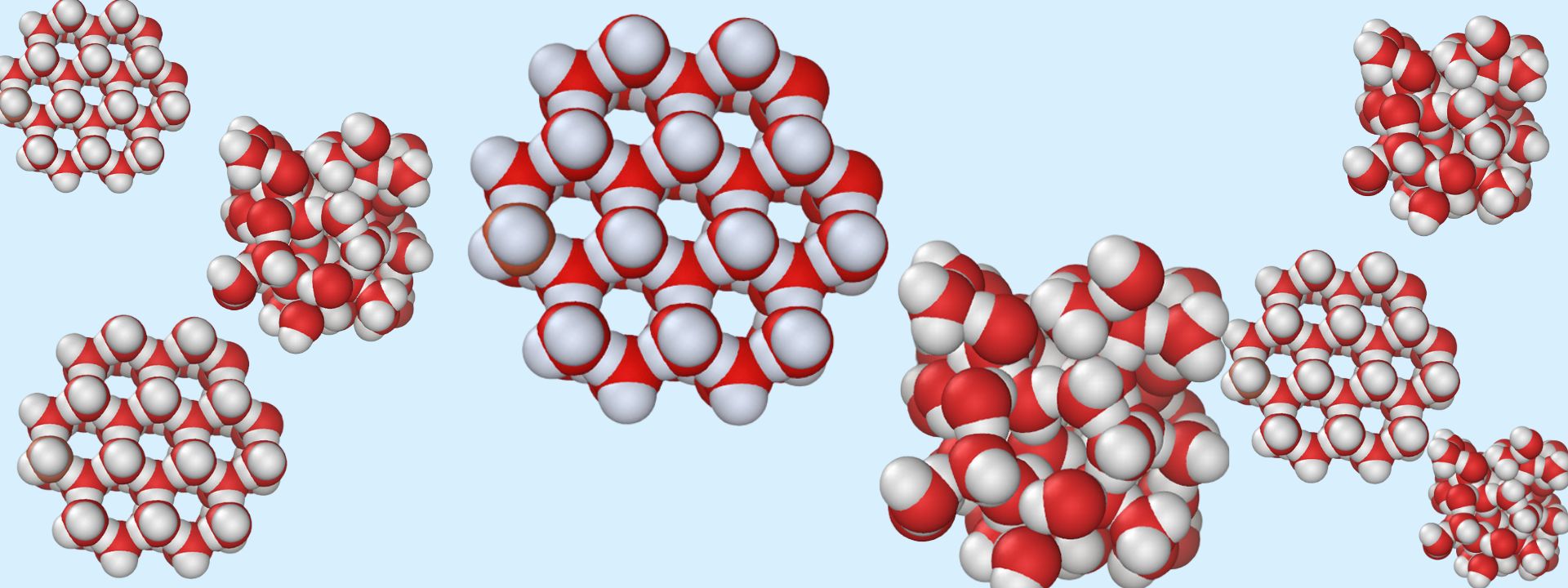
Water, you say?
I hurried to the train station on a bleak winter morning. As I navigated patches of ice on the cobble-stone walkways, my breath blooming like frosty little clouds in front of my face, I remember thinking, “Why would anyone from a tropical island decide to take on a workshop in England in the dead of winter?” Biochemists like a challenge, I suppose?
I was visiting Oxford University for the first time and was excited to participate in a discussion on quality assurance in the laboratory. Our lead facilitator was Sandy Primrose who has authored more than a dozen textbooks on gene manipulation. Among us older-generation biochemists, he was the greatest of all time — an honest-to-goodness GOAT.

I had a two-hour commute to the university from where I was staying near Camden. The workshop started just as I entered the lecture room in Ewert House. I was set.
At one point, Primrose asked the group to identify the one critical component that could make or break your experiment in any lab. Our answers varied as we considered every possible villainous character in the lab — from people to reagents to equipment to money. All were reasonable responses, but none of those were the answer our facilitator was looking for.
His gave us a hint: It’s in every single reaction we would ever prepare in the lab.
Water is the key to success.
Water, you say? The chemically inert solvent containing one oxygen atom and two hydrogen atoms with a neutral charge is a biochemist’s nightmare?
Exactly. Let me explain why.
Water quality and the methods used to purify it are important to a successful reaction, more so the ones in molecular biology that are driven by enzymes that utilize divalent cations as cofactors. And sometimes, water contains cations that an enzyme should do without.
We must rinse glassware in pure or ultra-pure water to remove traces of detergents that can interfere with serological reactions. Water used in the lab must be free of particulate, ionic, organic and microbial contaminants.
High-quality water ensures minimal carry-over and residue contamination during cuvette and probe washing, increases reagent stability, improves accuracy and precision in pipetting, and results in greater accuracy in spectrophotometric readings.
Among the gold standards of testing is reproducibility and high water quality plays an integral role in achieving reproducible results. The most basic necessity for life is also the basic necessity for my life as a researcher.
As the day ended, I made my way over the bridge to the train station once more; only this time, snow flurries kept me company during my walk, so fragile they melted as soon as they touched the warmer ground. Street lamps illuminated my route and turned the melting snow and ice into shimmering pools. Water, in all its forms, was all around me, and now I was paying attention.
Read more
Read more articles and essays about our ASBMB Molecule of the year.
Water takes center stage Danielle Guarracino remembers the role water played at two moments in her life, one doing scary experiments and one facing a health scare.
What I’ve learned about water, aging and protein quality control Alice Liu thought an increase in heat shock protein chaperones would prevent misfolding in Huntington’s disease proteins. The results surprised her, and water was the key.
The subtle strength of hydrogen bonds Indu Sridharan remembers how water complicated her atomic force microscopy imaging studies of collagen.
The teaching power of water “I questioned whether children would be very interested in this exercise; there wasn’t much to it.” At an outreach event, Jessica Desamero learns that three cups of water can convey complex science.
Water rescues the enzyme “Sometimes you must bend the rules to get what you want.” In the case of using water in the purification of calpain-2, Dorothy Croall writes, it was worth the risk.
There are worse things in the water than E. coli E. coli levels determined whether Olympic swimmers could dive into the Seine this past summer. But are these bacteria the best proxy for water contamination? Andrea Luis investigates.
Molecular impressions of water as cuneiform cascade Inspired by "the most elegant depiction of H2O’s colligative features," Thomas Gorrell created a seven-tiered visual cascade of Sumerian characters beginning with the ancient sign for water.
Virtual issue celebrates water in ASBMB journals Check out a dozen gold open-access articles covering exciting research about the society’s 2024 Molecule of the Year.
Enjoy reading ASBMB Today?
Become a member to receive the print edition four times a year and the digital edition monthly.
Learn moreGet the latest from ASBMB Today
Enter your email address, and we’ll send you a weekly email with recent articles, interviews and more.
Latest in Opinions
Opinions highlights or most popular articles

Sketching, scribbling and scicomm
Graduate student Ari Paiz describes how her love of science and art blend to make her an effective science communicator.

Embrace your neurodivergence and flourish in college
This guide offers practical advice on setting yourself up for success — learn how to leverage campus resources, work with professors and embrace your strengths.

Survival tools for a neurodivergent brain in academia
Working in academia is hard, and being neurodivergent makes it harder. Here are a few tools that may help, from a Ph.D. student with ADHD.

Hidden strengths of an autistic scientist
Navigating the world of scientific research as an autistic scientist comes with unique challenges —microaggressions, communication hurdles and the constant pressure to conform to social norms, postbaccalaureate student Taylor Stolberg writes.

Black excellence in biotech: Shaping the future of an industry
This Black History Month, we highlight the impact of DEI initiatives, trailblazing scientists and industry leaders working to create a more inclusive and scientific community. Discover how you can be part of the movement.

Attend ASBMB’s career and education fair
Attending the ASBMB career and education fair is a great way to explore new opportunities, make valuable connections and gain insights into potential career paths.

